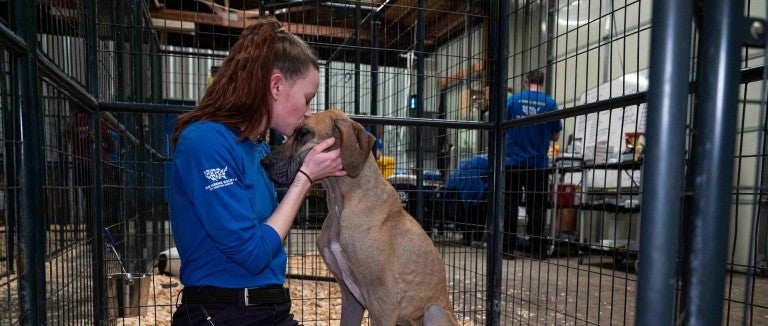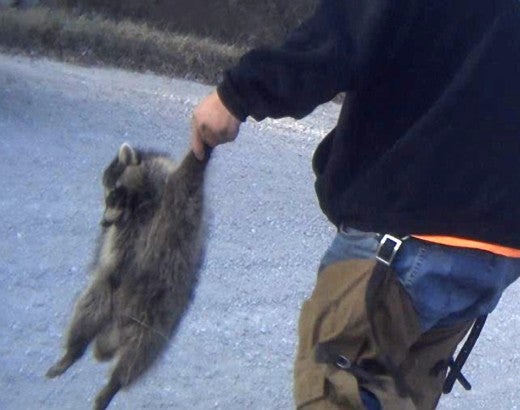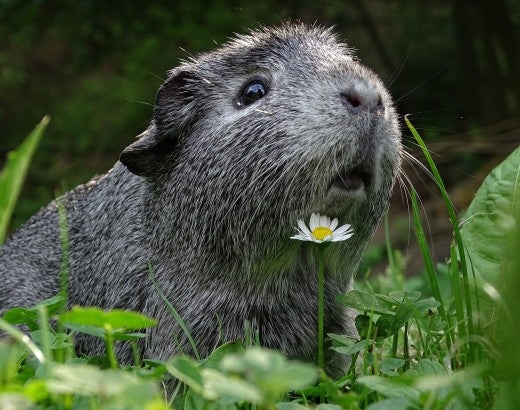In 2023, in the states, we helped to pass 153 good measures and prevented the passage of 66 bad ones. We’re on a similar course this year, and the first half of 2024 has seen a nice string of public policy successes at the state level. We’ve helped to pass bills on animals in cosmetics testing, cruelty statute upgrades, fur farming, outdoor dogs, spay/neuter funding, captive wildlife and veterinary licensure for out-of-state practitioners. And just yesterday, with Gov. Phil Scott’s signature, Vermont became the eighth state to prohibit the sale of dogs and cats in pet stores. The timing was great, foreclosing on the chance that any of New York’s problem puppy stores might try to cross into Vermont when New York’s own prohibition goes into effect in December.
There are many other good bills in play, including a number focusing on animals in research, testing and education, intensive confinement agriculture, puppy mills, trophy hunting and wildlife killing contests, all strategic priorities for us. We’ve also helped to stop the passage of anti-animal welfare measures across a range of concerns.
Our successes have resulted from the engagement and advocacy of countless supporters and volunteers throughout the country, as well as the day-to-day commitment of our state directors to navigate complex state-level politics and support animal protection at the grassroots level.
Many of the new laws provide immediate relief and protection to animals; that’s their primary function, and the reason we seek their passage. But they do still more. In some cases, they address issues not covered by existing or proposed federal laws. In other instances, the laws passed at the state level prove stronger and better than those we can feasibly usher into federal law.
It is also the case that states are often a proving ground for legislation that will one day be introduced and approved at the federal level and throughout the country. Moreover, some of the legislators who sponsor these bills go on to serve in the U.S. Congress and in other capacities where their support for animal protection measures will also make a big difference. in this and other respects, the gains we make in the states convey directly to our federal legislative priorities as well as to our larger mission of achieving broad, sweeping and lasting change for animals.
Of the recent wins, I was particularly encouraged by South Carolina’s cost-of-animal-care legislation, which passed after a unanimous vote in both chambers and a prompt signing by Governor Henry McMaster.
Cost-of-animal-care laws address a critical concern about the financial burden of caring for animals seized in cruelty or fighting cases, which too often falls upon budget-strapped local agencies and taxpayers. When animals are seized in cruelty or fighting cases, they must sometimes be held for weeks, months or even years while a case proceeds.
The new law shifts the cost of caring for animals seized to the defendants in a fair and straightforward legal process. Once animals are seized due to cruelty or fighting, the seizing agency or agency caring for them can request a hearing. There are several layers of due process protection, but if a judge determines the seizure was warranted, the owner must either pay for the animals' care or they are forfeited and can be adopted.
Since the HSUS began working in a focused way on cost-of-animal-care laws over the last decade, we’ve seen strong laws pass in at least nine states (Alaska, Georgia, Maryland, Montana, New Jersey, Pennsylvania, South Carolina, Wyoming and Washington) and the District of Columbia. About half the states have effective cost-of-animal-care laws, and we hope to see more pass in states with weaker laws over the next few years.
In a first for a U.S. state, and a public policy we would love to see replicated elsewhere, Minnesota passed legislation to better regulate the state’s fur farming industry, providing much needed oversight of these cruel and disease-ridden facilities. The move followed the issuance of a special report by the state’s department of natural resources. In addition to requiring inspections of fur factory farms, these facilities will be subject to proactive monitoring and testing for disease, including zoonotic diseases like COVID and avian influenza, something no other state currently requires.
Appropriately, Minnesota fur farmers will have to help cover the costs of this oversight through an annual fee. At a time when a faction in the U.S. Congress wants to subsidize the domestic fur industry’s expansion into global markets, it was good to see Minnesota’s example of responsible governance in the public interest. There is no good reason for government, state or federal, to subsidize a dangerous and dying industry.
This was also the year in which Washington state passed a ban on the sale of cosmetics newly tested on animals. Washington’s ban follows similar laws passed in California, Hawaii, Illinois, Louisiana, Maine, Maryland, Nevada, New Jersey, New York, Oregon and Virginia. Our continuing pursuit of legislative efforts to end cosmetics animal testing at the state level is helping to build momentum for a nationwide ban. These state laws closely mirror the federal Humane Cosmetics Act, the passage of which would make the United States the 46th nation worldwide to pass a law to limit or prohibit animal testing for cosmetic products.
Nor should our states be taken for granted in relation to the cruelties associated with captive display of wild animals for entertainment, increasingly the subject of state and federal policy work. A few weeks ago, Maryland passed a ban on the use of elephants, big cats, bears and non-human primates in circuses. To date, ten states and 200 localities in 37 states have passed restrictions on the use of wild animals in circuses and traveling shows.
The bills we work to secure at the state level are part of our broader national and international efforts to build out a strong legal protection framework for animals. Public debate over these measures helps to educate citizens and puts us on the road to further progress. And the bills that pass help to put more gravel down on that same road.
And so do you. If you are one of the many volunteers who took actions in support of these and other bills in 2024 (making calls, sending emails, signing petitions and/or attending hearings), we want to say this. We appreciate it and we’re grateful. Please keep up the excellent work which, we can assure you, really does make a difference.
Follow Kitty Block @HSUSKittyBlock.


